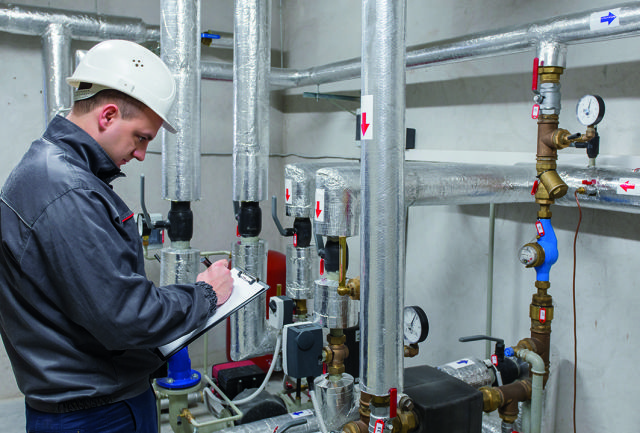The Why of commissioning

CSA expert Keith Barker explains why today's complex buildings need commissioning more than ever.
Is it time that the air and water commissioning industry looked at itself anew? Is commissioning, as we understand it, still relevant and does the construction industry still need a commissioning presence?
The role of the commissioning company really developed in the late 1970s, when building services consultancies realised that they could no longer afford to carry the numbers of staff needed to overcome the peaks in their workloads when they were followed by fallow periods. However, the increased sophistication of ventilation and cooling / heating systems may also have contributed to the rise of commissioning.
These new systems required a more detailed regulation process to achieve the required accuracy of air and water flow rates necessary to maintain building conditions within the relatively tight design tolerances. Water systems also needed more accurate balancing to ensure that the authority of control valves was not exceeded as this could lead to erratic temperature control.
But what about today’s requirements? Variable air volume (VAV) and constant volume box (CAV) systems are now commonplace. They have terminal units that are often electronically controlled. Additionally, variable speed drives for fans have not only become extremely cost effective, but are now capable of very fine control over fan speeds. The IT heat load in commercial buildings is such that many require next to no heating, and therefore have quite limited system capabilities.
Variable refrigerant flow (VRF) and DX close control cooling systems can manage building ‘hotspots’ cost-effectively. Chilled water systems are frequently variable flow (with 2-port valves on coils) and/or pressure independent control valves (PICVs). The electronic controls on chillers can accurately match their performance to the building requirements without excessive energy use. One must also remember that the sophisticated digital controllers and software used in today’s BMS provide exacting standards of monitoring and control of air and water systems. So, has the microprocessor reduced the need for commissioning, or removed it all together?
Some in the construction sector might well think so, but the CSA, which has represented the interests of commissioning engineers, both individually and at company level, for the best part of 30 years would suggest not. Every building, however ‘standard’ its construction, always develops its own peculiarities. The computerised design packages frequently used by MEP designers cannot necessarily cater for those peculiarities. In addition, however much care is taken at the initial design stage, there are always subsequent on-site modifications, client changes and the like.
It must also be remembered that when dealing with air flows in ducts, and of course water flows in pipework, you enter the world of fluid mechanics. How water and air behave when pumped along a series of tubes can be notoriously unpredictable. Every commissioning engineer you speak to has stories of systems that behaved completely unexpectedly and defied all logic. Each building has to be treated as a prototype.
Also note that, with the continual drive for efficiency and the resultant wider delta T’s and lower flow rates in water systems, it is essential to seek out expert advice, particularly at design stage. This will ensure that the correct control/measuring devices can be selected, and meaningful measurements achieved. In spite of sophisticated control systems, the mechanical systems still have to be ‘tuned’ to get them to a sufficiently stable operating point that will allow the control systems to run them in the most efficient way. One should also consider the question of noise.
This can be a contentious issue and a well-regulated system is likely to provide the best result. The most cost-effective way to do that is with the aid of qualified and experienced commissioning engineers. The CSA’s key goal is to help its members have the knowledge and skills to help their clients.
The wealth of technical knowledge and experience embodied in the members of our technical and training committees is second-to-none. Our members can always avail themselves of that resource. The message is that in spite of advances in technology – in fact, because of them – there are even more reasons to turn to professional commissioning engineers to carry out this important task.
Keith Barker is managing director of Tectonic Techniques and chairman of the CSA Marketing Committee.
Image credit: Shutterstock.com/Kaspars Grinvalds







